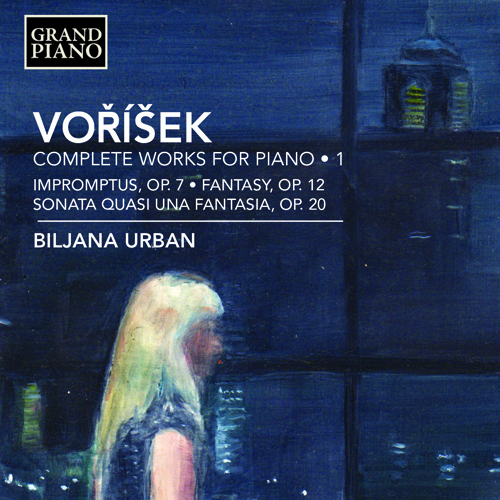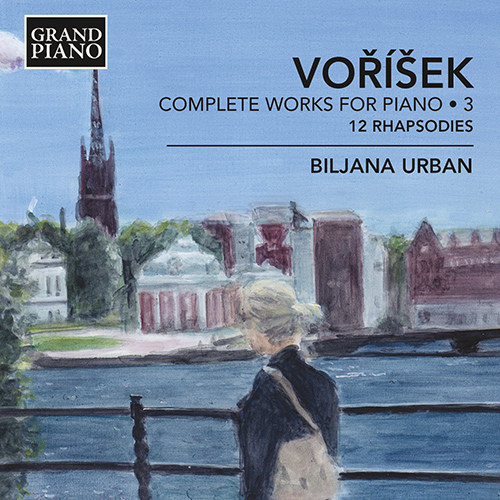
Jan Hugo Voříšek (1791 - 1825)
Like many before him, Jan Václav (Hugo) Voríšek, an exceptionally talented pianist and promising young composer, left his native Bohemia for Vienna in 1813 to further his musical ambitions. Under the patronage of Countess Rozina Kolowratz-Libstejnsky, owner of the Vamberk estate where he was born, Voríšek had already begun to establish his reputation in Prague as a pianist while studying philosophy, aesthetics, mathematics and later law at the Charles University. His failure to complete his studies in Prague was due to no lack of ability but rather the increasingly prominent part music was beginning to play in his life.
One of the most influential figures in Voríšek’s development as an artist was his teacher, the pianist and composer Tomášek, who was so impressed with his pupil’s abilities that he taught him free-of-charge from around 1804. Under Tomášek’s guidance Voríšek made rapid progress as a pianist but little attention was paid in his lessons to theoretical matters. Voríšek later recorded that instruction ceased when he reached the seventh chord and his extant notebooks appear to bear this out. Nonetheless, Tomášek’s own works as well as those of Bach and the great Viennese masters taught him a great deal about the craft of composition and Voríšek’s first works, some German dances and a funeral march, appeared in print as early as 1812. He also composed and had performed the cantata Gefühle des Dankes as a farewell to one of his teachers.
Although Voríšek’s move to Vienna in the autumn of 1813 was ostensibly to further his education in law, he threw himself into the musical life of the city. He quickly established a reputation as an exceptional pianist and, like his rivals, Moscheles and Hummel, he was particularly admired for his brilliant extempore playing. Voríšek appeared regularly in the concerts of the newly established Gesellschaft der Musikfreunde and indeed had performed Hummel’s Rondo brillant in A, Op. 56, at their very first concert in December 1815. He was appointed assistant conductor of the Gesellschaft’s orchestral concerts in1818 and the following year he was named a principal conductor and member of the advisory council. Among his many other musical activities in Vienna was regular participation in Kiesewetter’s Historische Hauskonzerte which gave Voríšek extensive experience of performing older works from which he also learned a great deal about compositional technique.
Although Voríšek was enjoying considerable success in Vienna as a pianist he returned to his legal studies and finally completed his degree. In May 1822 he was appointed a clerk in the maritime division of the Imperial War Department and later that year applied successfully for the position of Second Court Organist. He was appointed on 10 January 1823 and promptly resigned from his post in the War Department. On the death of the First Organist later that year Voríšek succeeded to the position which he held until his death from tuberculosis on 19 January 1825.





 Grand Piano has gained a reputation for producing high quality recordings of rare keyboard gems. Dedicated to the exploration of undiscovered piano repertoire, the label specialises in complete cycles of piano works by many lesser-known composers, whose output might otherwise have remained unknown and unrecorded.
Grand Piano has gained a reputation for producing high quality recordings of rare keyboard gems. Dedicated to the exploration of undiscovered piano repertoire, the label specialises in complete cycles of piano works by many lesser-known composers, whose output might otherwise have remained unknown and unrecorded.






